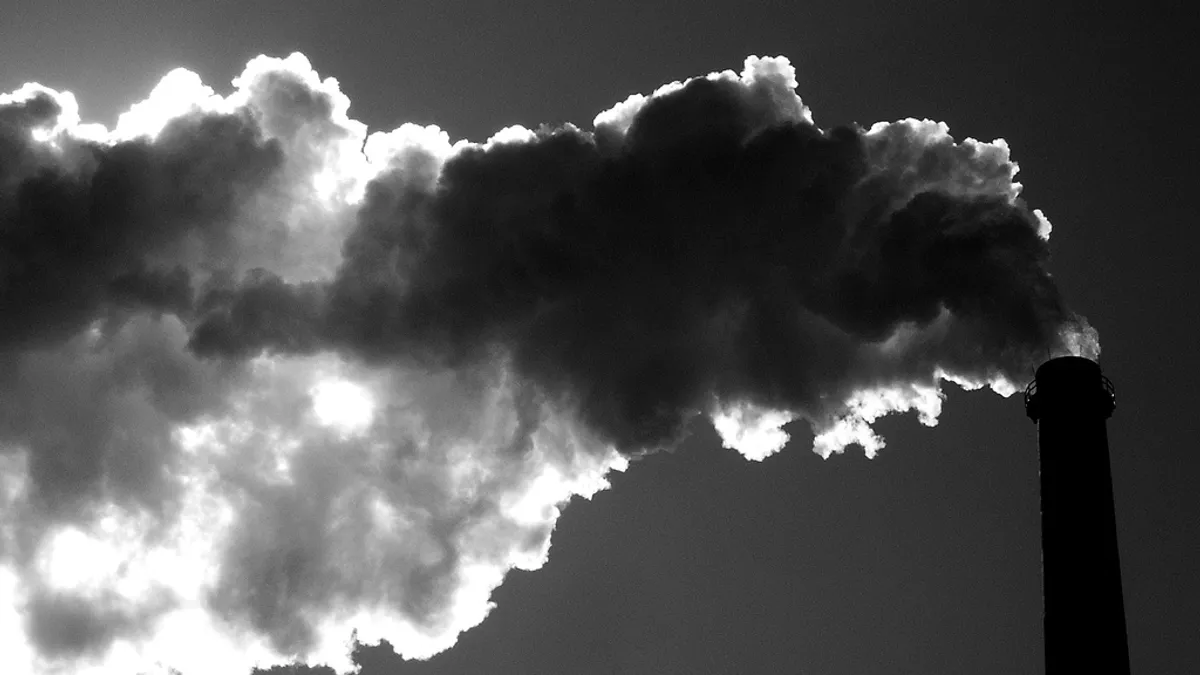This post has been updated to reflect the time Trump will sign the executive order.
Dive Brief:
- The White House is preparing to issue a broad executive order to roll back Obama-era energy and climate initiatives today at 2 p.m., according to media reports, which include rewriting the Clean Power Plan, a moratorium on new federal coal leases, and methane rules.
- While cautioning the final orders may contain changes, Bloomberg reports major provisions in a draft it obtained include: terminating the social cost of carbon, allowing federal coal leasing, and directing agencies to identify and eliminate barriers to energy production.
- What is less clear in the draft is where President Trump's actions leave the United States in relationship to the United Nations Paris climate accord, which seeks to hold the impacts of climate change below 2 degrees Celsius.
Dive Insight:
President Trump campaigned on rolling back restrictions on energy production and revitalizing the coal industry, but in the two months since his inauguration, other issues have taken priority. But now Trump is preparing to follow through on his promises to rewrite the Clean Power Plan and erase requirements that federal officials factor in the impacts of climate change in their decisions.
While some of the changes could happen immediately, rewriting the Clean Power Plan—which aims to cut greenhouse gas emissions 32%—will be a lengthy process with court challenges virtually assured. The rule is already under review at the D.C. Circuit Court.
The White House is expected to instruct the Department of Justice to ask the courts to drop the case. The D.C. Circuit court would have authority to abandon the case at DOJ's request, if they chose, but environmental groups would likely oppose that motion. There will also likely be lawsuits that the EPA is not fulfilling its obligations to regulate carbon dioxide, since the agency determined were a public health threat in a 2009 endangerment finding.
There has been some speculation that the end goal is to undo the endangerment finding, though some energy lawyers have said this would be a difficult challenge because the White House would need to successfully argue that greenhouse gases are not a public health threat. EPA Administrator Scott Pruitt, however, has previously signed on to a legal challenge to the endangerment finding in 2012.
The Clean Power Plan is the enabling rule for the United States to meet its Paris commitments, but many in the industry say the country could achieve the goals even without the rule. The falling cost of renewables and cheaper natural gas will continue to pressure coal plants.
While revoking the CPP may not revive the coal industry, it could have other impacts. According to clean energy think tank Energy Innovation, eliminating CPP will lead to $100 billion in extra costs by 2030, rising to $600 billion by 2050. And the resulting impacts to air quality would lead to more than 40,000 premature deaths in 2030, and 120,000 in 2050.















